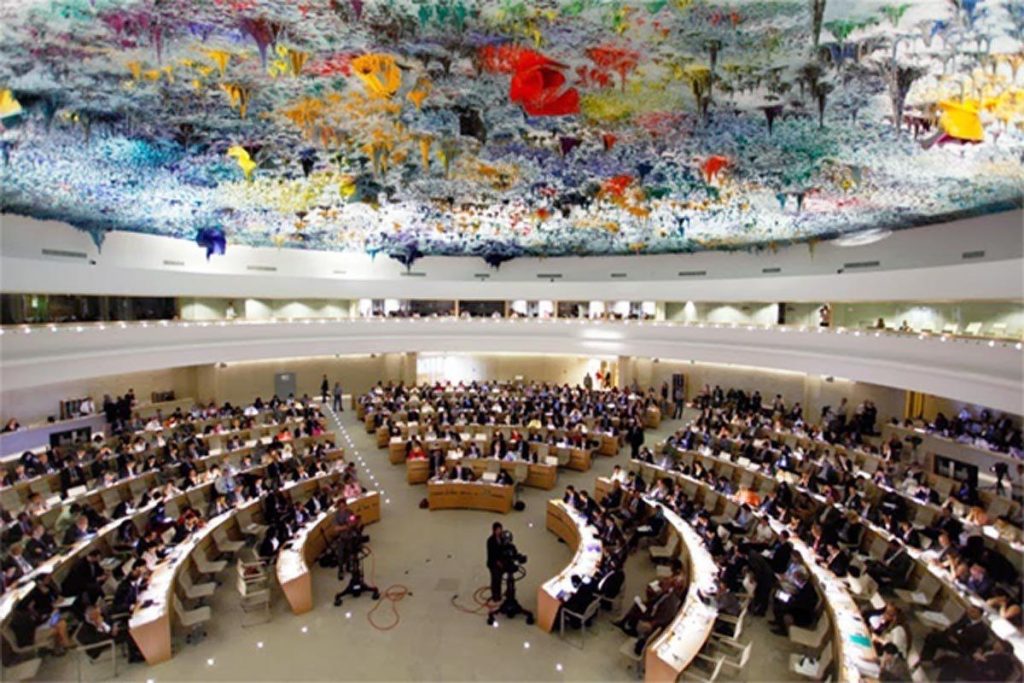Three Bahraini human rights organisations sent a joint letter to members of the Human Rights Council, informing them of the deterioration of the human rights situation in Bahrain and calling for Bahrain’s human rights record to be scrutinised by Member States during the 41st session of the United Nations (UN) Human Rights Council (HRC).
The three organisations welcomed the UNCHR’s recent statements on Bahrain, including calling for a moratorium on imminent executions, expressing concern over the mass revocation of citizenship, and calling for the immediate release of human rights defenders.
The joint letter, which was signed by Salam for Democracy and Human Rights (SALAM DHR), Gulf Institute for Democracy and Human Rights (GIDHR), and Bahrain Forum for Human Rights (BRHR), calls on Member States to put pressure on Bahrain to: halt the death penalty and abolish all death sentences, reinstate the citizenship of at least 439 citizens whose nationality has been arbitrarily revoked by executive order or unjust court decisions since 2012, and immediately and unconditionally release all individuals detained for exercising their fundamental rights, including Sheikh Ali Salman and Nabeel Rajab, and drop all charges against them, and open independent investigations into all complaints of torture and ill-treatment, prosecute the perpetrators and compensate the victims fairly.
The letter referred to a number of issues, including the deprivation of nationality. Since 2012, 990 individuals have been stripped of their nationality, rendering most stateless. On 19 April 2019 alone, the citizenship of 138 people was revoked in an unfair mass trial, which was condemned by the United Nations High Commissioner. Despite the fact that 551 citizens have had their nationality reinstated since, the nationality of 439 other Bahrainis remain revoked, including of the religious leader of the Shi’a community in Bahrain, Sheikh Issa Qassem, as well as human rights defenders, including Jawad Fairooz and Sayed Ahmed Alwedae.
The letter also refers to the death penalty. The last two years have seen the resumption of executions and an unprecedented wave of death sentences; 26 death sentences were issued in 2018 alone in politicised cases, often based on confessions obtained under torture and following unfair trials. Several other death sentences were upheld in 2019, which means that there are now 10 individuals at imminent risk of execution, two of which have recently been highlighted by United Nations Special Rapporteurs. We expect an increase in the number of death sentences in 2019, with the Bahraini House of Representatives passing new legislation that expands its use.
With regard to freedom of expression, the organisations noted that Bahrain continues to criminalise peaceful exercise of freedom of expression by imprisoning human rights defenders and opposition leaders. On May 6, 2019, the court rejected the issuing of a non-custodial sentence for human rights defender Nabeel Rajab, who is serving a five-year prison term for peacefully-worded tweets. On 28 January 2019, the Court of Cassation upheld the life sentence of Bahraini opposition leader Sheikh Ali Salman. In addition, a number of activists have recently been targeted, accused of cybercrimes, as the Ministry of Interior seeks to further restrict freedom of expression on the Internet.
With regard to freedom of association, the organisations’ letter mentioned that Al-Wefaq Association, the largest opposition party, was dissolved in 2016, and the Wa’ad Association was dissolved a year later. Opposition leaders have also been targeted in a wave of arbitrary arrests and unfair sentences, including the Secretary-General of Al-Wefaq, Sheikh Ali Salman, who was sentenced to life imprisonment in November 2018. Ahead of the next parliamentary elections in November 2018, the authorities imposed further restrictions on freedom of association.
On torture and ill-treatment, the organisations noted that Bahraini officials continue to torture and abuse many Bahraini civil society members now in prison, including human rights defender, opposition figures, journalists and lawyers. Political prisoners are subjected to physical and psychological attacks, and denied urgent medical care, including in Jau Prison, the Dry Dock Detention Center and the Women’s Detention Center in Isa Town. Sexual harassment is also one method of torture used in detention centers.


 العربية
العربية Français
Français Deutsch
Deutsch